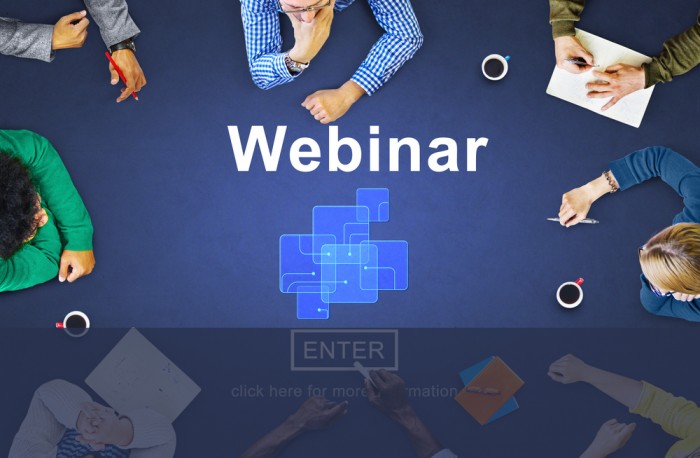ACL
DETAC Webinar on Supporting Employment Goals Through Small Business Ownership to be Held March 12
Meeting of the President’s Committee for People With Intellectual Disabilities on March 21
Thursday, March 21, 2024
12:00 pm – 5:00 pm ET
Register for the Meeting
The President’s Committee for People with Intellectual Disabilities (PCPID) will host a virtual meeting for its members to address issues surrounding home and community-based services (HCBS) to be examined in the Committee’s Report to the President. All the PCPID meetings, in any format, are open to the public. This virtual meeting will be conducted in a discussion format with committee members addressing the issues and recommendations identified by PCPID work groups proposing to be incorporated in the PCPID Report to the President. View more details published in the Federal Register notice.
For further information, please email ACL.
This meeting will include CART and American Sign Language (ASL) services. If there are additional reasonable accommodation requests, please contact J. Welborn and Sensis Agency by Thursday, March 7.
Stakeholder input is very important to the PCPID. Comments and suggestions, especially from people with intellectual disabilities, are welcomed. If there are comments related to HCBS or other areas that you would like to inform the PCPID, please share them through the PCPID comment form. Comments received by March 12 will be shared with the PCPID at the March 21 meeting.
About the President’s Committee for People with Intellectual Disabilities
Initially established in 1966 by President Lyndon B. Johnson, the PCPID advises the president and the secretary of health and human services on a broad range of topics that impact people with intellectual disabilities, as well as the professional fields that support people with intellectual disabilities and their families. Its goal is to improve the quality of life experienced by people with intellectual disabilities by upholding their full citizenship rights, independence, self-determination, and lifelong participation in their communities.
ODP’s Community of Practice for Supporting Families Shares 2022 National Agenda
Input Needed: Proposed Regulations for Adult Protective Services Programs

The Administration for Community Living (ACL) is seeking input on a proposed rule to establish the first-ever federal regulations for adult protective services (APS) programs. Instructions for submitting comments and registering for an informational webinar can be found on ACL’s website and below.
APS programs across the country support older adults and adults with disabilities who experience, or who are at risk of, abuse, neglect, self-neglect, or financial exploitation. APS programs investigate reports of maltreatment; conduct case planning, monitoring, and evaluation, and provide, or connect people who have experienced maltreatment to, a variety of medical, social service, economic, legal, housing, law enforcement, and other protective, emergency, or support services to help them recover. Over the past decade, ACL has led federal efforts to support the critical work of APS programs through a variety of initiatives.
First-Ever Federal Regulations for APS
The proposed rule aims to improve consistency and quality of APS services across states and support the national network that delivers APS services, with the ultimate goal of better meeting the needs of adults who experience or are at risk of maltreatment. To those ends, the proposed rule:
- Establishes a set of national standards for the operation of APS programs that all state APS systems must meet. These standards formalize — and build upon — the existing National Voluntary Consensus Guidelines for State APS Systems.
- Establishes common definitions for the national APS system to improve information sharing, data collection, and standardization between and within states.
- Requires state APS systems to develop policies and procedures, consistent with state law, for coordination and sharing of information to facilitate investigations with other entities, such as state law enforcement agencies and state Medicaid agencies.
- Requires state policies and procedures to be person-directed and based on concepts of least restrictive alternatives.
- Establishes requirements for data collection, retention, and reporting.
- Establishes requirements for mandatory staff training and ongoing education on core competencies for APS staff and supervisors.
ACL has created a fact sheet with highlights of key provisions of the rule, and the full text of the proposed rule can be found on the Federal Register website.
Input Needed
The proposed rule is the culmination of many years of engagement with stakeholders from APS and long-term care ombudsman programs, as well as disability advocates, from across the country. It also reflects input received through several listening sessions, extensive research, and analysis of data from a 2021 survey of 51 APS systems, ACL’s National Adult Maltreatment Reporting System, and policy profiles from APS programs in all states and territories.
ACL now seeks feedback on the proposed rule from all who are interested in improving implementation of APS programs and services. Input from the aging and disability networks and the people served by APS programs is particularly crucial.
Comments will be accepted for 60 days, beginning when the proposed rule is officially published in the Federal Register (which currently is scheduled for Tuesday, September 12). Instructions for commenting, along with the comment deadline, can be found in the Federal Register notice and on ACL’s website.
An informational webinar will be held on Monday, September 18, at 11:30 am ET. Advance registration is required.
For additional questions, contact Fady Sahhar.
NASDDDS Seeking Steering Committee Members
The National Association of State Directors of Developmental Disability Services (NASDDDS) is pleased to share this announcement from the Administration for Community Living (ACL) with our members. As you know, NASDDDS, along with NASMHPD, NADD, and other key partners, was awarded a five-year grant from ACL for a technical assistance and resource center to improve supports for individuals with intellectual and/or developmental disabilities who also have mental health conditions.
An important part of this grant is that its work will be guided by a steering committee comprised entirely of individuals with living experience. We are excited to announce the open recruitment for Steering Committee members. The center is looking for people with intellectual and/or developmental disabilities (I/DD) who have mental health conditions and want to share their experiences. We are hoping to identify potential candidates from many different backgrounds with many different perspectives, so we hope that you will share this opportunity within your state.
The steering committee of 12 people will meet 4 times per year. Steering committee members and, if needed, their support staff will be paid to participate in this project.
A recruitment explainer video by NASDDDS partner Green Mountain Self-Advocates is posted on the NASDDDS YouTube channel. The three-minute video includes open captions and American Sign Language interpretation.
We are asking individuals to contact us if they are interested by March 17, 2023. More information can be found here. Thank you in advance for sharing this with your partners!
ACL TBI Partners Day Registration Now Open
In observance of Brain Injury Awareness Month, the Administration for Community Living (ACL) will be hosting a virtual Traumatic Brain Injury (TBI) Partners Day on February 28, 2023, from 12:00 pm – 4:00 pm. Registration for the free event is now open.
Each year, under what was previously called TBI Stakeholder Day, ACL convenes interested parties to discuss important issues around TBI services, supports, and systems and to learn from other partners, brain injury survivors, family members, support networks, and state and federal representatives.
This year, there will be sessions on aging, employment, the intersectionality of TBI and other medical and social issues, and peer support.
ACL is still working on finalizing the agenda for the 2023 ACL TBI Partners Day; however, they plan to include state and federal representatives as well as brain injury survivors and family members in the sessions. Session participants will be given the opportunity to ask questions during each session.
The webinar will include ASL interpretation, live English captions, and live Spanish interpretation. If you require additional accommodations to participate or if you have any questions about the event, please contact them via email.
Save the Date: ACL TBI Partners Day on February 28, 2023

The Administration for Community Living (ACL) recently released the following Save the Date notice:
Please join the Administration for Community Living (ACL) in observance of Brain Injury Awareness Month. ACL will be hosting a virtual Traumatic Brain Injury (TBI) Partners Day on February 28, 2023, from 12:00 pm – 4:00 pm.
Each year, under what was previously called TBI Stakeholder Day, ACL convenes interested parties to discuss important issues around TBI services, supports, and systems and to learn from other partners, brain injury survivors, family members, support networks, and state and federal representatives.
This year, we will have sessions on aging, employment, the intersectionality of TBI and other medical and social issues, and peer support.
While we are still working on finalizing the agenda for the 2023 ACL TBI Partners Day, our plans are to include state and federal representatives as well as brain injury survivors and family members in the sessions. Session participants will be given the opportunity to ask questions during each session. There will be no cost to register for the event.
We will provide more details about the 2023 TBI Partners Day in the coming weeks. If you have any questions about this event, please do not hesitate to contact us via email. For now, please save the date!
ACL Webinar on December 14 — Strengthening Advocacy in the HCBS Settings Rule
ACL invites you to a webinar in their series on strengthening advocacy in the Home and Community-Based Services (HCBS) Settings Rule, “Getting the Services You Need From the Waiver,” on Wednesday, December 14, 2022, 12:30 pm – 2:00 pm EST. Register for the webinar here.
The HCBS Settings Rule can improve community-based services and supports for people with disabilities and older adults for decades to come. This webinar will provide insight into one of the main strategies stakeholders can use to get the promise of the rule into everyday life: influencing the services that are included in the waiver application.
The webinar will highlight why you should pay attention to the waiver application and what is in an application, with a focus on Appendix C – Services. It will also look at what states have to put into the application and highlight best practices for commenting on your state’s waiver application.
Live captioning will be provided. A video replay and transcript will be made available following the event on ACL’s HCBS Settings Rule web page.
Speakers:
- Jill Jacobs, Commissioner, Administration on Disabilities, ACL
- Nancy Thaler, Senior Advisor, ACL
- Laura Miller, Managing Attorney, Equip for Equality
Contact Erin Shea with any questions.
The Voices of People with Disabilities and Older Adults: Strengthening Advocacy in the HCBS Settings Rule — Webinar Sept. 23
Friday, September 23 | 2:00 pm ET
Register for the webinar.
The Home and Community-Based Services (HCBS) Settings Rule can improve community-based services and supports for people with disabilities and older adults for decades to come. A key requirement of the Settings Rule is that states hear from people with disabilities and older adults about how the state can best implement the rule.
The Administration for Community Living (ACL) is hosting this webinar to provide participants with an opportunity to learn when and how to invite and/or provide feedback on state efforts to comply with the rule. Presenters will share key dates, strategies, and examples of how powerful the voices of people with lived experiences can be in creating more opportunities for choice and control in service delivery and advancing the quality of services.
Live captioning will be provided. A video replay and transcript will be made available following the event.
Contact Shawn Terrell with questions.














